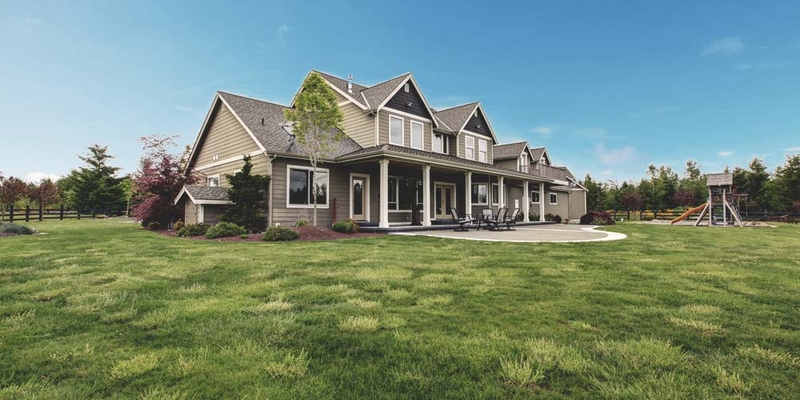
If you are not redirected within 30 seconds, please click here to continue.
Samedi: 10h – 16h HAE

If you are not redirected within 30 seconds, please click here to continue.
If you are not redirected within 30 seconds, please click here to continue.
Planning to move from an urban area to a rural one? New home insurance perils may await

The pandemic caused many Canadians to make some major life changes. One of the most common being a change of scenery. According to a recent Aviva Canada report, six-in-10 Canadians factored COVID-19 into their decision to move to a different location, be it from an urban area to a rural one, or vice versa.
But moving from, say, a house in the city to one in the country brings up quite a few financial considerations, such as having to purchase a car due to lack of transit options or spending more money on gas to get around in a less populated area. One important question is: what happens to your home insurance?
"When moving to more remote areas, Canadians should always contact their insurance representative to ensure they have the right coverage for the additional protection required,” said Phil Gibson, EVP and managing director of personal insurance at Aviva Canada, in the report.
Moving to a more rural area can introduce new potential liabilities when it comes to your home insurance policy. The following perils should be considered before making the move.
Wildfires in forested areas
According to Stefan Tirschler, product and underwriting manager at Square One Insurance Services Inc., even though home insurance policies across the board will ask about fire safety concerns, the answers to these questions in a rural setting are more complicated than those in an urban setting.
For example, says Tirschler, moving just 30 minutes west of Calgary can be enough to change your coverage needs. Suddenly, you’re living in the foothills amongst a mature forest, and the land around your home is extremely combustible. Plus, in rural areas like this, you often only have volunteer fire departments who can’t always bring huge tanks of water to a burning home.
The increasing frequency and intensity of wildfires across Canada also adds a new degree of risk to home insurance policies, particularly in rural settings. Tirschler says that in an area prone to wildfire, getting a quote before you purchase a home is crucial — or else you might wind up without any insurance.
“If those purchases are going through in the middle of wildfire season when wildfires are threatening the city, the moment the home sale completes, that can be a problem,” Tirschler says. “Insurance providers are often hesitant to take on a home when a loss is certain, as opposed to a chance.”
Flooding risk is much higher in rural versus urban areas
If you’re planning to move from a high-rise building or apartment in the city to a home in the country, heavy rains and flooding will become more of a concern. Even if you own a home or live in a basement apartment in a city, municipalities have the infrastructure to manage runoff, such as grates and a drainage system, Tirschler says.
But in rural areas, you need a good understanding of how water will affect your property to help calculate your insurance risk. This is especially important during the spring melting season and after heavy rainstorms (which are also becoming more common in Canada).
Inland and overland flooding coverage is widely available, but Tirschler points out that high-risk flooding areas are often excluded from those coverages. Referring to a flood map can help you determine if you live in or are moving to an at-risk area.
Wildlife is more common in rural areas
Moose, bears, and elk are just some of the bigger creatures you may find in rural areas. They may be majestic animals, but they can also pose a big insurance risk to your new home.
Though many home insurance policies cover animal damage, Tirschler encourages you to read that part of your policy carefully. There are some policies with bear exclusions, for example. And if you’re living in the Rockies, you will almost certainly need that coverage.
Get a home insurance quote before you buy
To remove any unpleasant surprises from your exciting new move, Tirschler recommends getting a home insurance quote before you buy. Not only will this help you see if your home is insurable, but it also allows you to budget for your premium.
“You don’t have to buy the house to get a quote for it,” Tirschler says.
Tirschler has even seen buyers in hot markets make affordable insurance one of their pre-purchase conditions. Keeping insurance top of mind during the moving process is a great way to lessen stress in the future.
Don't waste time calling around for home insurance
Use RATESDOTCA to shop around and compare multiple quotes at the same time.
Finding the best home insurance coverage has never been so easy!
Get money-saving tips in your inbox.
Stay on top of personal finance tips from our money experts!










